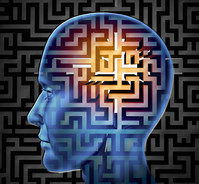Author: DynamicBrain Inc.
Publication: Monthly Newsletter
Published Date: February 17, 2020
In recent years, there has been a major shift among thought leaders—including the Alzheimer’s Association, the American Academy of Neurology, the World Health Organization, and the National Academies of Sciences, Engineering, and Medicine—toward recommending evidence-based brain training. And, with over a hundred published studies, BrainHQ stands out!
Our quality of life would be compromised if we lost cognitive alertness. Don’t wait until it’s too late. If you’re already a BrainHQ user,
exercise now. If you’re thinking about taking advantage of BrainHQ, don’t delay. Try a few
free exercises and join today.
Keep well and stay sharp!

Kind regards, Frieda Fanni
President
DynamicBrain Inc.
DynamicBrain Inc. is the Canadian partner of Posit Science Corporation providing brain fitness program BrainHQ in English and French.
|
 |
 When brain networks come “online”
When brain networks come “online”
Scientists don’t fully know why mental health disorders, like depression and anxiety, often occur for the first time in teenagers. Brain scan research in the UK has revealed that new connections between brain regions bring networks “online” as teenagers become adults. The networks help develop the advanced social skills people need to navigate adulthood. This kind of brain development is ongoing and ever-changing, with some networks becoming weaker while others become stronger. Scientists believe that insight from this research will help them understand the causes of mental illness in young people.
Find out more
here.
 Take a deep breath
Take a deep breath
When you think of drowning, you think of water. But did you know that “drowning” is what often happens to the brain when someone suffers a stroke? Cerebral edema, which is swelling in the brain, is a severe side effect of a stroke. The glymphatic system normally “takes out the trash,” removing waste from the brain. New research shows that the glymphatic system stops working normally during a stroke and floods the brain with cerebrospinal fluid, causing cerebral edema. More research is needed, but the findings could help treat victims of strokes.
Learn more
here.
 Different types of exercise
Different types of exercise
Did you know that the type of physical exercise you do can influence your brain differently? Researchers have discovered that low- and high-intensity exercise trigger different brain networks. Using a specialized type of MRI on athletes, researchers found that low-intensity exercise activates networks for cognition and attention, while high-intensity exercise triggers networks for emotions. This discovery could pave the way for effective clinical therapy and even for enhancing brain plasticity.
Read more
here.